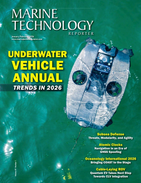Composites X Steel Deepwater Pipes
The development of pipes that can withstand high pressure, heat and corrosion in deepwater locations such as offshore Brazil and the GoM and WA is continuous. For many years steel piping dominated the O&G industry but with pre-salt projects beyond 2,000 meters deep and corrosive enhanced oil recovery techniques widely being used in the industry, pipeline manufacturers have been looking for more flexible and robust materials.
France's Technip, which is a world leader in pipe manufacture, uses layered steel with a stainless steel or plastic lining for main offshore pipes. However, British engineering company Magma Global and Dutch company Airborne are pioneering composite pipes made from a fusion of high-end fibers and plastics which are up to 90% lighter than steel pipes and do not corrode. These companies have caught the attention of the oil majors and have contracts with companies such as Shell, Total, BP and Exxon.
For deepwater projects, engineers believe that traditional steel pipes may be too heavy and vulnerable to corrosion, although these have been and are being used. One of the main complaints about deepwater use of steel pipes relates to IMR (inspection, maintenance and repair) costs, because traditional steel pipes demand a greater amount of maintenance and repair than so forms of composite constructed pipes. Magma Global produces a pipe made out of a carbon fiber and PEEK polymer composite, which is considered by many specialists to be the highest quality pipe in the industry, effectively being free of corrosion problems, suffers very little aging and has a very low fatigue sensitivity.
According to Magma, in terms of cost, these composite pipes are competitive with the high-enf steel flexibles produced by Technip and NKT. Airborne uses glass fiber and a variety of plastics to produce a slightly cheaper and yet more flexible pipe. Deepwater risers, the flexible pipes that connect productions platform to subsea wells are one of the main targets for the composite pipes, but players are still skeptical about going with the new unproven technology because of oil spill risks.
One of the biggest issues is developing an industry standard and this may be the best way to convince operators to try composite risers. Magma and Airborne have come together to commission independent research to give them recommended practice. DNV, as the premiere deepwater pipe certifier, is responsible for the independent research and results are expected to be out in June.
Sources: Magma Global, Airborne, Reuters


























 February 2026
February 2026



